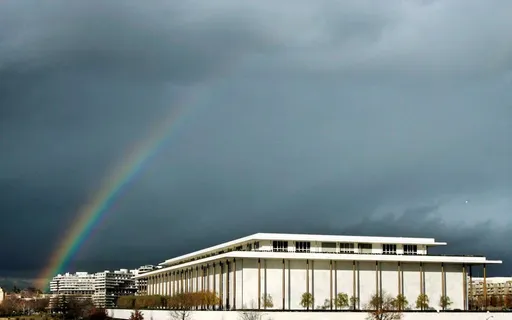On Sunday, the Libyan Army’s spokesman for the Sirte-Jufra Joint Operations Unit, General Abdulhadi Dirah, said Russian-made cargo planes sent new military shipments to warlord Khalifa Haftar’s militias.
Talking to the Anadolu Agency, Dirah also stated that Ilyushin-type planes with military ammunition conducted five flights to Sirte and Jufra provinces on Saturday. Furthermore, according to the general, two additional flights were made from Syria to Benghazi in which Syrian regime soldiers were sent to the second biggest city of Libya.
Last May, reports emerged that Russia is planning to send mercenaries from Assad regime forces to fight alongside warlord Khalifa Haftar’s illegal militias against the UN-backed government GNA forces in Libya.
Since April, Russia’s plan to reinforce Haftar’s militia with Assad regime fighters has been in action. On April 24, it was revealed that a high-ranking Russian commander, along with his team, had multiple meetings with those fighting with Assad regime forces in Daraa, while Russia reportedly offered $1,000 and a 3-month renewable contract in exchange for their service to the warlord.
According to the same report, one group of mercenaries accepted Russia’s offer while another refused. Thereafter, the group that had accepted it began working to recruit others in Daraa.
The mercenaries were reportedly trained at Russian military camps in Syria and were paid for by the country, too. Also, in March, Russia made a similar deal with hundreds of mercenaries working for the Assad regime in the country’s southern city of Quneitra. Others from the southern city made the same deal with Russians and agreed to join Haftar’s ranks following their training in Syria.
Earlier last month, local sources in Libya also stated that Russia sent more than 300 mercenaries - they included former Daesh terror group members from the regions controlled by the Syrian regime in the east of the country.
In July of this year, 300 members of“Shabiha” militias that are linked to the Assad regime from Syria’s Deir Ezzor province, along with Iranian-backed foreign groups called Fatimiyyun, Zeynebiyyun and Jerusalem brigades, were sent by the Russians to Libya on a monthly salary of $1,000-1,500. They were all trained on Russian military bases in Syria’s Latakia province before joining Khalifa Haftar’s militia.
Moreover, according to sources, some mercenaries sent by Russia were former members of Daesh who had returned to Deir Ezzor by signing a "compromise" with the regime and later joined the Jerusalem Brigade - and had fought for Daesh for nearly 2.5 years.
Estimates say around 2,000 mercenaries from Syria have been sent by Russia to date.
Befitting militias of the warlord Haftar
Haftar's militia has large contingents of criminals and mercenaries, a far cry from Haftar's description of his men being a disciplined and professional force.
One of Haftar’s senior commanders, Mahmoud al Werfalli, is a fugitive, dodging an arrest warrant issued by the International Criminal Court. While Haftar failed to invade the capital city of Tripoli on several occasions, the conflict recently took a new turn with Russian mercenaries from Wagner siding with Haftar. Apart from Wagner, Haftar has managed to rope in several dozen militias.
Janjaweed, an armed group from South Sudan, are fighting alongside Haftar. Former Sudanese president, Omar al-Bashir, officially converted Janjaweed Militia into the Rapid Support Forces under the command of the National Intelligence and Security Services. They were used to defeat rebel groups in the country in 2013.
Human Rights Watch’s report revealed that the RSF militias have committed war crimes, rape, and displaced civilians in 2014 and 2015 in Darfur.
Last year, reports emerged that the first unit of the RSF militia arrived in Libya in order to support Haftar for his operation to capture Tripoli. More than a thousand members reportedly arrived in the oil-rich country. RSF is also led by a warlord, named Mohamed Hamdan Dagalo, also known as Hemedti.
Although Haftar claims he is fighting religious extremists, ironically, he is closely working with the Salafist Madkhali, an extremist group supported by the UAE and Saudi.
There are other Salafist armed groups linked to Haftar, such as the Subul al-Salam and the al-Wadi Brigade. Both groups have gained influence in Libya following the end of Gaddafi’s term in 2011.
Furthermore, US Africa Command stated that as many as two thousand mercenaries belonging to the Russia-based Wagner Group were believed to be sent to Libya. According to several reports, the Wagner Group is closely linked to Russian President Vladimir Putin.
Last year, US Assistant Secretary for the Affairs of the Near East, David Schenker, stated that the US will work with European countries to place sanctions on Wagner, citing “the spectre of large-scale civilian killings" by the paramilitary organisation.
























